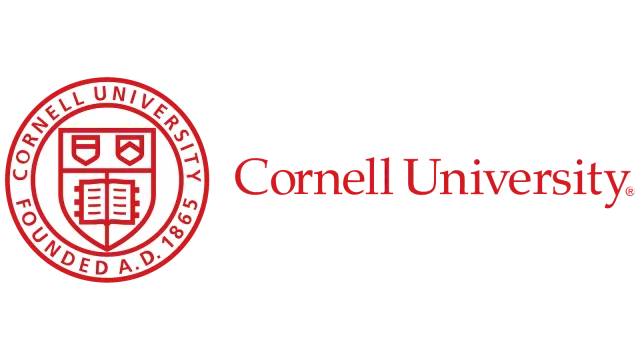Table of Contents
Cornell must reject student government’s call for trigger warnings

Jay Yuan / Shutterstock.com
UPDATED (March 30, 2023): Today, Cornell’s Student Assembly posted its minutes from last week’s meeting confirming the resolution passed “unanimously."
Last week, Cornell University’s student assembly adopted a resolution urging the administration to require faculty to provide content warnings prior to discussing potentially “triggering” material in the classroom. FIRE warned Cornell today that adopting such an illiberal policy would substantially chill faculty speech and violate the university’s firm commitment to academic freedom. The controversy represents yet another data point in this year’s trend in student calls for censoring speech they dislike.
The resolution, presented March 23, urges the university to require faculty to provide advance warning for potentially “triggering classroom content,” which the resolution says includes, “but [is] not limited to,” material involving “sexual assault, domestic violence, self-harm, suicide, child abuse, racial violence, transphobic violence, homophobic harassment, etc.”
This contrasts with current Cornell policy, which “affirms the importance of extending to all students and employees the core values of free and open inquiry and expression,” and defines academic freedom as giving faculty full “freedom of expression in the classroom on matters relevant to the subject and the purpose of the course and of choice of methods in classroom teaching.” Cornell therefore cannot adopt the trigger warning resolution without jeopardizing the university’s ability to deliver on this core commitment.
The student assembly resolution is problematic for a number of reasons.
The university should first make clear that faculty remain free to make decisions about how to teach their own courses.
Cornell faculty have pedagogical autonomy to determine whether and how to introduce or approach material that may be challenging, upsetting, or even deeply offensive to some students. This means faculty members must receive substantial breathing room to determine how to approach subjects and materials relevant to their courses, including the freedom to decide whether to provide a content warning prior to introducing those topics. As we told Cornell: “A blanket requirement that faculty provide warnings for content categories prescribed by others violates their right to pedagogical autonomy.” (For what it’s worth, FIRE would also fight any mandate preventing faculty from choosing to use trigger warnings.)
There’s also the question of whether the mandate would even achieve the students’ stated purpose of protecting students with PTSD. Research shows that trigger warnings are counterproductive. As Carleton College professors Amna Khalid and Jeffrey Aaron Snyder have noted, “trigger warnings actually increased the anxiety of individuals with the most severe PTSD, prompting them to ‘view trauma as more central to their life narrative.’”
The resolution calls for an overbroad and vague policy. Overbroad speech policies sweep in protected speech. The students here attempt to require a trigger warning for a universe of protected speech (“not limited to,” “etc.”). Faculty apparently must provide the warning if there’s any chance a student might be “triggered” by it. And the resolution’s unacceptably vague definition of what constitutes “triggering speech” fails to provide faculty notice of what content would require a warning. “For example,” as we wrote in our letter, “faculty may question whether they must provide a trigger warning when teaching about slavery, the civil rights movement, certain court cases, or even The Bible if a student might be upset by the content.”
To be clear, while FIRE disagrees with this resolution, students and student governments are free to express themselves and call for policies. But when illiberal calls like this occur, it’s up to the administration to protect free expression and academic freedom, which are core to the university’s educational mission.
With illiberal calls for censorship led by students, it’s important to consider why students passed this resolution in the first place. As we told Cornell, even if it’s not considering adopting this initiative:
[I]ts significant popularity raises broader issues of how students perceive their relationship to Cornell’s mission to “discover, preserve and disseminate knowledge, to educate the next generation of global citizens, and to promote a culture of broad inquiry throughout and beyond the Cornell community.”
Substantially limiting what and how faculty teach will not advance students toward this laudable goal.
In light of this resolution, the university should first make clear that faculty remain free to make decisions about how to teach their own courses. Then Cornell should work on teaching its student body why that freedom is important.
FIRE defends the rights of students and faculty members — no matter their views — at public and private universities and colleges in the United States. If you are a student or a faculty member facing investigation or punishment for your speech, submit your case to FIRE today. If you’re a faculty member at a public college or university, call the Faculty Legal Defense Fund 24-hour hotline at 254-500-FLDF (3533). If you’re a college journalist facing censorship or a media law question, call the Student Press Freedom Initiative 24-hour hotline at 717-734-SPFI (7734).
Recent Articles
FIRE’s award-winning Newsdesk covers the free speech news you need to stay informed.

AI is new — the laws that govern it don’t have to be

Defending free speech: FIRE and Substack partner to protect writers in America

Brown University targets student journalist for sending DOGE-like emails



